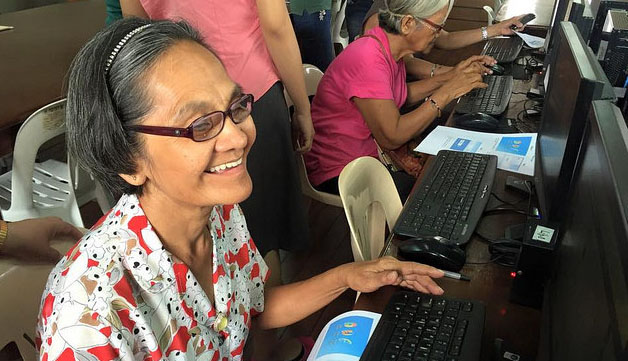Building a Stronger Information Society from the Bottom Up: IFLA Statement on Digital Literacy
22 August 2017

More and more of our lives take place online. Everything from keeping in touch with your family to filing your tax return takes place over the Internet. The confidence to use, and the skills to make the most of digital technologies, are increasingly essential for personal fulfilment and community participation.
Libraries have long helped their users to learn, create and take part. Through promoting literacy – the ability to read and understand written works – they give people access to culture and information. As set out in the Development and Access to Information report, this access drives progress towards all of the goals set out in the UN’s 2030 Agenda.
With this mission in mind, libraries have been pioneers in promoting not only Internet access, but also offering support where people need it. Thanks to libraries, not only do millions of people every year get their first experience of the Web, but they learn how to do everything from creating webmail accounts or getting a weather forecast, to using specialised tools to improve agricultural yields, taking a critical attitude to different information sources and coding.
Just as basic literacy has long enabled people to make the most of print, digital literacy is allowing people to make the most of digital tools to improve their lives. For those who are not yet online, there is a great opportunity to ensure that physical access is accompanied by initiatives to develop the skills, knowledge, attitudes and behaviours to be responsible, successful Internet users.
Meanwhile, at a time that some call for censorship of much online content, claiming that people are unable to deal with the possibilities of digital, it is more important than ever to underline that access combined with digital literacy is the only sustainable way forwards.
The IFLA Statement on Digital Literacy, published today, argues for digital literacy as both a driver of development and alternative to censorship. It calls for a broad definition, going from basic digital skills to coding and critical thinking, and emphasises the role of libraries in tailoring support to the needs of individuals. And it underlines that partnerships, with schools, economic actors and civil society, will help us deliver a successful, and sustainable, information society.
Download the statement and discover more about what libraries are doing to promote digital literacy in our dedicated resource pack.